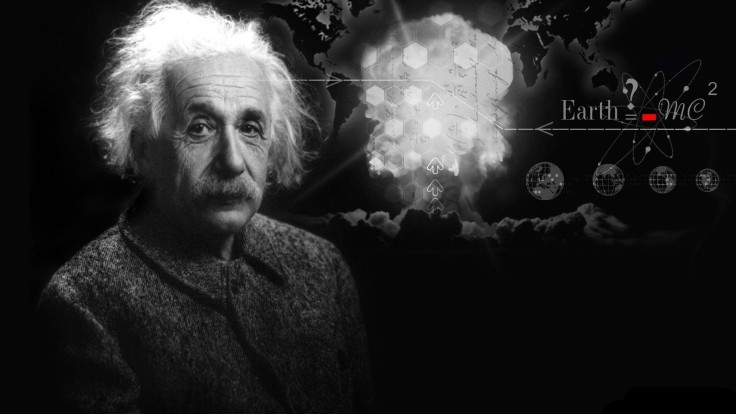Epic Fail: How Albert Einstein's And Marie Curie's Struggles Help High School Students Do Better In Science

Albert Einstein and Marie Curie are attributed with some of the most notable scientific discoveries in human history, though that's not to say either of them had it easy. Now, researchers from the Columbia University suggest if children understand the hard work that went into these historic achievements, they will be better equipped to overcome their own obstacles.
"When kids think Einstein is a genius who is different from everyone else, then they believe they will never measure up," said the study's lead researcher Xiaodong Lin-Siegler, a cognitive studies professor at Columbia, in a press release. "Many students don't realize that all successes require a long journey with many failures along the way."
For the study, Ling-Siegler and her team recruited 402 high school students from four high schools located in parts of the Bronx and Harlem, N.Y. They divided students into three groups and gave each one an 800-word science textbook to read over the course of six weeks. The first version was the typical text given in schools today, where the great accomplishments of Einstein, Curie, and English-scientist Michael Faraday all appear. The second group of students read a version describing those same scientists, except it revealed the personal struggles they had to overcome in order to reach their accomplishments, such as when Einstein had to flee from Nazi Germany in order to avoid being prosecuted as a Jew. Lastly, the third group read a version of a textbook that described the scientists' intellectual struggles such as Curie's failed experiments, but the perseverance that afforded her and others future opportunities to do great work.
During the experiment, students continued their own school work, tests, projects, and homework. And in the end, it was the students who learned about the scientists' personal and intellectual struggles that made significant improvements in science class. Students who started off with lower grades were the ones who benefited the most from the stories of overcoming obstacles.
Lin-Siegler told Quartz the results surprised her. She believed the students would be discouraged by the geniuses’ great achievements because they had obstacles and were able to overcome them; however, when students were giving feedback about their textbook shuffle experiment, they said the scientists seemed more like regular people. Humanizing some of the greatest scientific minds all of a sudden made students' goals seem more attainable. In fact, the students who read the typical textbooks strictly about the scientists’ achievements were led to believe they had accomplished great feats because they had innate talent and special acumen for scientific success, which gave the students a reason to give up.
Perseverance and the ability to believe in oneself is the key to overcoming and accomplishing great things, according to the study. In psychology, this is known as the "growth mindset" — a mindset where challenge and failure are not discouraging or a sign of unintelligence, but instead an opportunity to grow and improve upon existing abilities. By learning about great achievers' struggles, such as Einstein and Curie, students learn their own failures can serve as a springboard for success instead of evidence of hopelessness.
"In our culture we always say you don’t want to intimidate kids, you don’t want to tell them how hard the work is," Lin-Siegler said. "We think kids are so fragile. Tell them the truth. They are resilient."
Source: XLin-Siegler X, Ahn JN, Fang FFA, Luna-Lucero M, and Chen J. Even Einstein Struggled: Effects of Learning About Great Scientists’ Struggles on High School Students’ Motivation to Learn Science. Journal of Educational Psychology. 2016.
Published by Medicaldaily.com



























